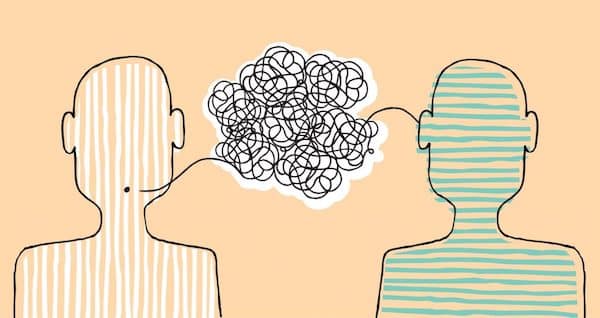
Dear Avalon family,
Here’s a question for you: What do you hear, right now?
My windows are open so that I can enjoy the coolness of the early morning. I hear the soft breeze blowing through the leaves of the trees, the traffic noise at a distance, the mumbling voices of two women chatting as they walk by my home, the refrigerator motor running, and a sudden clunking sound as the ice maker releases new ice cubes.
When I asked you what you hear, it may have prompted your brain to take control of this sensory experience and LISTEN, rather than just hear. When you put your attention on your auditory surroundings, you are practicing the skill of LISTENING.
Hearing is a vastly underrated sense
Did you know that your hearing signals your brain TEN times faster than your vision when there’s a change in your environment? Your hearing never turns off and even works while you sleep. The human auditory system has evolved into a complex and automatic “volume control” to help keep most sounds of our noisy world out of our attention and mind. If this function did not happen, your brain would go crazy, trying to process every little sound.
This is where ATTENTION plays an important role
There are actually a few different types of attention. The most basic is the ‘startle’ response. It happens when you hear a car horn while driving, alerting you to danger, while making an unsafe lane change.
The next type of attention is the ‘bottom-up’ response, which occurs when you hear your name, but requires nothing else of you.

Last of all is the ‘top-down’ response. An example of this type of attention is being engrossed in your favorite television program. Your brain actively focuses on what you are hearing and tunes out sights and sounds that aren’t important. This requires more complex processing of your brain. It’s also the kind of attention needed when you truly listen to another person. This kind of attention takes energy and concentration.
It’s sad to say, but LISTENING may be a skill that we are in danger of losing in this overstimulated world of digital distractions and information overload. Then, add in the Coronavirus pandemic. I believe that we may be at risk in losing our humanity when we don’t engage in true LISTENING.

Now, add in a gradual hearing loss
As one’s hearing fades, many of the background sounds become fainter, maybe even inaudible. This diminishes our sense of connection to our environment. When you barely hear that annoying bark of your neighbor’s dog or the noise of the air conditioner, it may seem more peaceful, but it also disconnects you from being part of life. So how do we train our brains to actively LISTEN and stay connected?
Take the Avalon challenge
- Start by wearing your hearing instruments every day. You may ask, why? After all, you really aren’t talking to people when at home alone, or when your spouse is in another room. So why bother? Here’s why. Properly fit hearing aids stimulate your ears and your brain. Put them on first thing in the morning and wear them all day long, until you go to bed.
- Focus on your breath and really listen to yourself breathe. It’s soothing.
- Listen to music. If you already listen to music, take time to really listen to new music.
- Go outside and listen to the sounds of nature. Better yet, do this while taking a walk around the neighborhood. And listen to all the sounds, as if they were a form of meditation.
- Listen to a loved one’s voice – not only their words, which can be easy to tune out. Notice the intonations of their voice and the emotions underneath the words.
Let’s turn this epidemic of not LISTENING around
As humans, we often choose to distract ourselves instead of connecting with another person. We choose rushed convenience over slow savoring, strong opinions over respect and understanding. This is a very emotional time in the history of humankind. We find ourselves having to be more thoughtful and mindful about what we do, and how we participate safely in life.
Together, let’s step up our practices of paying attention and truly LISTENING, so we can turn this epidemic of not listening around!

P.S. For those of you who know you need hearing aids, whether it’s your first set or a new pair, please don’t think of them as “hearing aids”. Think of these miraculous devices as exercise machines that stimulate your ears and your brain. Then, pick up the phone and call Avalon at (916) 235-9771 for your free EDUCATIONAL Hearing Test & Consultation. It’s good for you, it’s good for your hearing and it will make listening that much easier!

